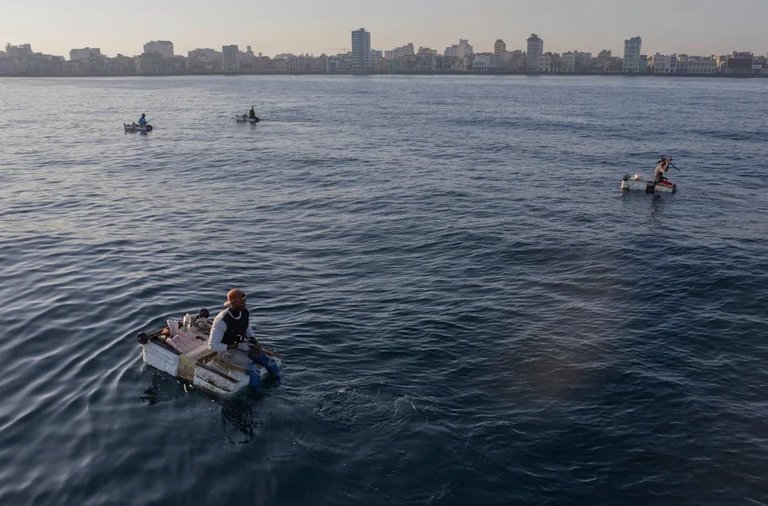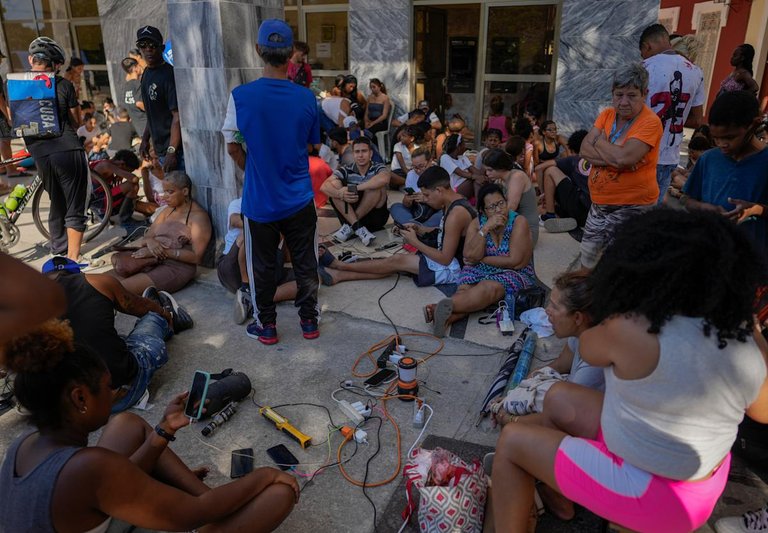The Latin American Report # 493

An update on Cuba
The situation on the island shows no signs of progress, but rather of further decay and anxiety. When some time ago the Government changed the Minister of Energy and Mines and the Director of the National Electric Union, many of us correctly saw that move as what it was: a symbolic way of making people think that strong measures were being taken, that all was just a management problem and that the new appointees would do a better job. Time has shown that the problem is chronic, that it is in the bones and not in the skin, and that it is not the responsibility of whoever is behind the bureau of the Minister of Energy and Mines or the director of the electricity authority, but, in any case, of the entire political leadership of the country.
It is important to make this explicit because in Cuba, major measures are not adopted based on the isolated initiative of a minister, but through “collegiate” bodies such as the Council of Ministers. Nothing strategic, such as the approval of an investment in a thermoelectric plant, is left to the decision of the minister of the branch. Then, the truth is that in the last few days, the deficits in generation capacity due to breakages in thermal units or lack of fuel for engines distributed all over the country have reached (new) record levels. Some power circuits only have two or three hours of service daily.
The Washington dimension
As I always explain, all this has a very important, and for me decisive, basis in the US sanctions. The Treasury Department of the first Trump administration designated the Cuban fuel-importing company. As if this were not enough, doing business with Cuba is riskier than jumping from the top of a skyscraper, because we are included in the State Sponsors of Terrorism list. This is a measure, also from Trump's first stage in the White House, which has neither head nor tail, but which imposes even more difficult challenges to a country that already stinks in the international financial market when it comes to doing business or making a payment, even with money in hand, let alone accessing credit.
 Source
SourceThe internal one
What is also clear time and again is that Cuban authorities have no indigenous alternatives to take the country at least one or two steps forward from a better management of the economy. Of course, Cuba is being economically pressured by the greatest power that history has ever known. Yet I am convinced that with better minds at the nation´s helm, the scenario would be just as dangerous but considerably more positive for a population exhausted by blackouts and punishing inflation—of food, medicines, and other basic inputs.
Political management
In the last hours, one of the most tense points of the political discussion on Cuba was the revocation of the conditional freedom granted to a notorious opposition activist, who is not very bright intellectually, but who has gained political relevance. The activist, who has maintained links with the U.S. regime change policy, would have been absent from certain follow-up processes that motivated the withdrawal of the penal benefit, which he received as part of an opaque and absurd agreement that the Cuban government negotiated with the late Biden administration through the recently deceased Pope Francis. A good question for Havana is if this action serves well somehow for just one (sound) reason.
 Source
Source

It is evident that the problems Cuba has are not it's alone, as the recent example of Spain and France reveal. The cause of this problem is endemic to the malevolent class of oligarchs, an enmity to humanity that has deprived civil societies of their proper blessings and instead pushed on them insufficient means, such as solar power in the UK and across N. Europe, and then following that with Bill Gates funded geoengineering projects that further reduce insolation the natural supply of is already insufficient due to latitude and climate.
Cuba has the advantage of not suffering it's local leaders being appointed by this class of malevolent misleaders. The ability to locally produce graphene from hydrocarbon waste, manufacture ink of graphene, and using inexpensive inkjet printers to make solar panels locally is only untapped because of the nature of the polity, and this - not the specific persons in the bureaucracies - is the hurdle Cuba must overcome to prosper more than it's foreign enemies.
I hope your intelligentsia can do this. Cuba can become a leader of peoples today suffering malevolent leadership if it can, because both Western civilization and Cuba are oppressed by the same people, for the same reasons. Only by decentralized actions can this new technology become of use, and because I see 'Mene, mene tekel upharsin' on the looming wall (if your biblical knowledge suffices for the reference) I am personally undertaking to develop such local productive capacity. Insofar as the Cuban people are individually and communally able to do this, as the lack of political intereference allows, then the insufficiency of polities and bureaucracies will be of less and less consequence going forward, as it will be here.
Thanks!